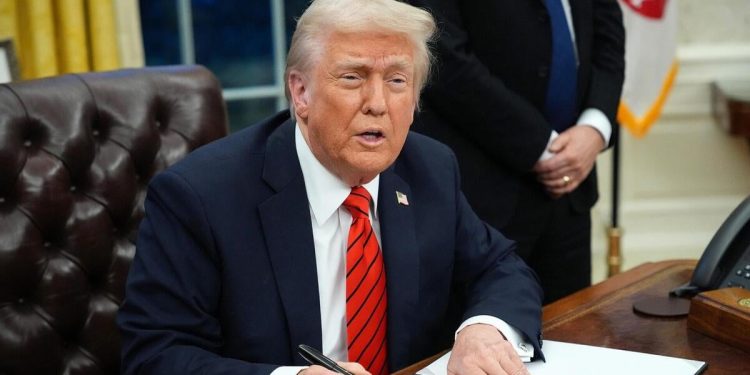On Thursday , President Trump issued a memo to his administration directing it to consider reciprocal tariffs. He threatened to impose levies against U.S. products imported from countries that impose higher duties on American goods.
In a factsheet about the tariffs, the White House stated that the plan would “seek to correct longstanding imbalances in the international trade system and ensure fairness on a global scale.”
“The days of America being exploited are over: This plan will put American workers first, improve their competitiveness in all areas of industry, decrease our trade deficit and bolster economic and national security.”
The Trump administration has not disclosed when tariffs will be implemented.
This development is a sign of an intensifying U.S. Trade War as Mr. Trump attempts to extract concessions from his country’s economic allies and leverages trade policy in order to achieve other foreign policy goals.
The announcement was made before a meeting with Narendra Modi the prime minister of India. India is a country which could be subject to reciprocal tariffs. Modi recently tried to allay the concerns of the Trump administration regarding trade issues by reducing India’s import tariffs for motorbikes and whiskey bourbon, as well as agreeing to accept planes with undocumented immigrants.
Trump has announced tariffs against Canada, China and Mexico. He suspended tariffs for Canada and Mexico after both countries pledged to improve border security. This week, he announced tariffs of 25% on steel and aluminium scheduled to go into effect in March.
Economists say that a similar tariff on a few U.S. trading partner is a better option than a broader tax. Trade data shows that Argentina, Brazil India and Turkey are the countries with the largest gaps in tariffs.
Shilan Shah said in a Capital Economics report that while most developed markets will be relatively unaffected, emerging markets like India, Brazil, and Turkey would see a loss in competitiveness. It is likely that, among others, their governments would make concessions to President Trump to avoid reciprocal tariffs.
Officials in the Trump administration say that tariffs are a way to protect domestic manufacturers, and can also encourage both American and international companies to create jobs here in the U.S.
Tariffs, which are taxes on imported goods, can lead to higher consumer prices, warn economists. The latest round in U.S. Tariffs comes amid signs of inflation. Analysts predicted that the Consumer Price Index in January would rise by 3% annually.










